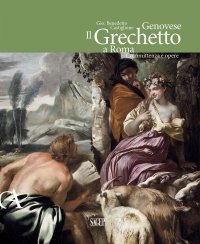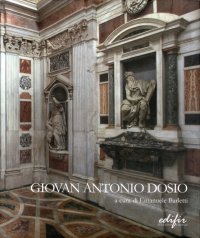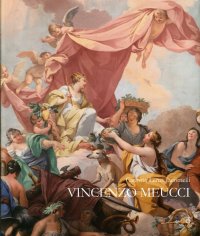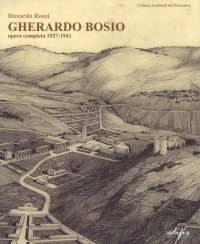Gio. Benedetto Castiglione Genovese. Il Grechetto a Roma. Committenza e opere
A cura di Orlando Anna e Francesco Rotatori.
Genova, 2023; br., pp. 304, ill. col., cm 23x29.
prezzo di copertina: € 150.00
|
Libri compresi nell'offerta:
Gio. Benedetto Castiglione Genovese. Il Grechetto a Roma. Committenza e opere
A cura di Orlando Anna e Francesco Rotatori.
Genova, 2023; br., pp. 304, ill. col., cm 23x29.
OMAGGIO (prezzo di copertina: € 150.00)
Giovan Antonio Dosio Da San Gimignano Architetto e Scultor Fiorentino tra Roma, Firenze e Napoli
A cura di Emanuele Barletti.
Fotografie di BACHerin Paolo e Saverio De Meo.
Prima edizione 2011.
Firenze, 2011; ril., pp. 844, ill. b/n e col., tavv., cm 24x28,5.
OMAGGIO (prezzo di copertina: € 98.00)
Vincenzo Meucci
Co-Editore: Cassa di Risparmio di Firenze.
Firenze, 2015; cartonato, pp. 304, ill. col., cm 25x29,5.
(Arte).
OMAGGIO (prezzo di copertina: € 50.00)
Gherardo Bosio. Opera Completa 1927-1941
Firenze, 2016; br., pp. 368, ill. b/n e col., cm 23x28.
(Architetti del Novecento. Storia e archivi).
OMAGGIO (prezzo di copertina: € 60.00)
The Print Collection of Cassiano dal Pozzo. II: Architecture, Topography and Military Maps
Mark McDonald
Harvey Miller Publishers
Testo Inglese.
London, 2019; 3 voll., ril., pp. 936, 1634 ill. b/n, cm 22x28,5.
(The Paper Museum of Cassiano dal Pozzo. Series C: Prints. 2).
collana: The Paper Museum of Cassiano dal Pozzo. Series C: Prints
ISBN: 1-912554-21-6 - EAN13: 9781912554218
Soggetto: Architettura e Arte Civile,Architettura e Arte Militare,Arte Libraria (Carte, Mappe, Codici Miniati),Collezioni
Periodo: 1400-1800 (XV-XVIII) Rinascimento
Testo in: 
Peso: 0.81 kg
This second and final part of the catalogue presents the architectural, topographical and military prints. Over 750 prints are devoted to ancient and modern Rome: from an album entirely dedicated to St Peter's - the largest building project of the day - to another covering the major pilgrim and other churches in Rome, including exterior views, plans, altarpieces and statuary. The palaces and villas of Rome are also well represented, including Falda's famous Palazzi di Roma, while the ancient city is evoked through two compilations of sixteenth-century prints: Hieronymous Cock's Roman ruins and the Speculum Romanae Magnificentiae with many reconstructions of ancient buildings. The collection stretched well beyond Rome however, and included architecture in other Italian and European cities (including Rubens's Palazzi di Genova and Perret's engravings of the Escorial). The European theatre of war is represented in over 600 prints recording major sixteenth- and seventeenth-century military engagements: an extraordinary assemblage that testifies to the popularity of this genre of printmaking that not only celebrated victory but provided information to convey news of military events. This ground-breaking catalogue will be an essential resource not only for students of prints, but for all those studying European visual culture in the seventeenth century.












